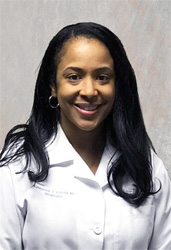Category Archives: Family Health
Flu Season Forecast
By: Celisa McGrone, CRNP
Cold weather is on the way, and with it comes another flu season. Before the flu can knock you down, find out how to fight back and avoid the misery it brings.
Flu – short for influenza – is a common virus that infects millions of Americans each year. For most people, the flu isn’t dangerous, but people over 65, young children, pregnant women and people with chronic medical conditions are at greater risk for serious complications, such as pneumonia and sepsis.
The flu vaccine is the most effective way to prevent the flu, but the tricky virus can mutate and produce nasty new versions of itself. The vaccine protects against three or four types of flu – and is updated yearly — but since the vaccine is manufactured ahead of time, sometimes a new strain pops up, putting more people at risk.
Flu season usually starts in October, so there’s no time to waste. Here’s what you can do.
- Get a flu shot: No surprise here – the annual flu vaccine is the number one way to protect yourself and your family. The vaccine is not 100% guaranteed to prevent the flu, but it greatly lowers your risk. Also, if you get the shot and get sick anyway, the vaccine can reduce the severity of your symptoms.
- After you get the shot, it takes up to two weeks to reach maximum protection, so the sooner you get the vaccine the better. The CDC recommends that everyone six months or older get the shot before the end of October.
- Take action to prevent infection: Doing these simple things can greatly reduce your risk of getting infected, or of you spreading the virus to others.
- Cover your nose and mouth with a tissue when you cough or sneeze. Throw the tissue in the trash after you use it.
- Wash your hands with soap and water often. If they aren’t available, use an alcohol-based hand rub.
- Avoid touching your eyes, nose and mouth. Germs spread this way.
- Clean and disinfect surfaces and objects that may be contaminated with flu germs.
- Try to avoid close contact with sick people.
- If you are sick with flu symptoms, the CDC recommends you stay home for at least 24 hours after your fever is gone.
- Ask your doctor about antiviral drugs: If you get the flu, antiviral drugs can be used to treat your illness. They can’t cure the flu, but they can make your illness milder and shorter.
Next steps
- All MPCP offices now have the flu vaccine, so make an appointment to get your shot.
- Think you may have the flu? Check your symptoms.
 Celisa McGrone, Certified Registered Nurse Practitioner, received her Master of Science in Nursing degree from Mercer University. She sees patients in MPCP’s Arnold office.
Celisa McGrone, Certified Registered Nurse Practitioner, received her Master of Science in Nursing degree from Mercer University. She sees patients in MPCP’s Arnold office.
Top Health Issues for College-Bound Kids
By: Lisa Goldberg Keithley, M.D.
You have a college-bound teen? Congratulations!
While you’re selecting classes and picking out towels, be sure to also pay attention to your teen’s health. Due to large classrooms and tight living quarters, college students are at risk for some potentially serious infections, including meningitis, mononucleosis, mumps and the flu. Here’s what you need to know to keep your college student safe.
Meningitis
Meningitis is an inflammation of the protective membranes surrounding the brain and spinal cord that’s usually caused by a bacterial or viral infection. Symptoms include fever, headache, stiff neck, vomiting, nausea, sensitivity to light, and confusion. In some cases, it can be deadly.
Fortunately, meningitis isn’t very common, and there’s an effective vaccine to prevent it. Many colleges recommend that students get vaccinated to prevent outbreaks.
What to tell your student: If they have symptoms of meningitis, they should put on a face mask, if possible, and get to the nearest emergency room. Meningitis is very contagious, so going to the student health center is not a good option.
Mononucleosis
Caused by the Epstein-Barr virus, mononucleosis is often called the “kissing disease” because can be transmitted through saliva. Besides kissing, mono can be passed by coughing, sneezing or sharing a glass or eating utensils.
Symptoms include a sore throat, fatigue, low-grade fever, stomach pain, and swollen tonsils. Mono can also cause serious complications such as enlargement of the spleen and liver inflammation.
What to tell your student: If they are experiencing symptoms of mononucleosis, they should get checked out at the student health center. Unfortunately, people with mono can be laid up for weeks, which is bad news for a college student.
Mumps
Mumps is a viral infection that affects the salivary glands located near your ears. Symptoms include fever, headache, muscle aches, tiredness, and loss of appetite – also swelling of the salivary glands, which causes puffy cheeks and a tender, swollen jaw.
Mumps is highly contagious, but cases have been greatly reduced thanks to the childhood MMR (measles, mumps, rubella) vaccine. However, even if your child was vaccinated, there is still a small chance they can get mumps.
What to tell your student: If they think they may have the mumps, they should visit the student health center. And if mumps is spreading at their college, they may need to get another dose of the MMR vaccine as a booster.
The flu
The influenza virus usually occurs in the fall and winter, and can be quickly spread by coughing and sneezing. The flu’s well-known symptoms include fever, cough, muscle aches, sore throat, runny nose, headaches, and fatigue, which typically last up to a week. Flu can be prevented, or its effects reduced, by the annual flu shot.
What to tell your student: They should go to the student health center soon after the onset of symptoms to get antiviral medicine, which can shorten the length of the flu. And, of course, they should get the annual vaccine at home or if it is offered on campus.
Before your student heads off to college, be sure they are up to date on recommended vaccinations. Ask your MPCP doctor what your child needs to stay healthy and reduce their risk of illness.
 Dr. Keithley holds her medical degree from Drexel University College of Medicine and is certified by the American Board of Family Practice. She sees patients in MPCP’s Arnold office.
Dr. Keithley holds her medical degree from Drexel University College of Medicine and is certified by the American Board of Family Practice. She sees patients in MPCP’s Arnold office.
Connect to Care with MyChart
You can access your medical records, request an appointment, refill a prescription or ask your doctor a question about a non-urgent issue. The MyChart patient portal makes that – and more – possible anywhere you have an internet connection.
Log in to MyChart 24/7 from your computer, cell phone or tablet. It’s secure, easy to use, and is operated by MPCP in partnership with the University of Maryland Medical Center. With MyChart, you can:
- Request or cancel an appointment. View details of your past and upcoming appointments.
- Request prescription refills: Send a refill request for any of your refillable medications.
- Access test results: No more waiting for a phone call or letter. View your results and your doctor’s comments within days.
- Communicate with your doctor: Get answers to your non-urgent medical questions from the comfort of your own home (select providers).
- Review your health records: Have a question about current or past treatment? See your health summary, a list of your medications, or your visit history.
- Pay your bill.
Not registered for MyChart ? Contact your MPCP office and make sure they have your current email address and mobile phone number. With your email, they will send you an invitation to sign up; with your mobile phone number, they will send a text.
Already registered? Sign in to MyChart today and enjoy for the benefits of being connected to MPCP.
Have questions? See the MyChart FAQs.
How to Fight Winter Allergies
By: Kimberlee Adkins, M.D.
You survived spring pollen and summer hay fever. Now that the weather has cooled off, you’re due a break from allergies, right?
Maybe not. There are no pollens during the winter, but you still have indoor allergens — things that can cause an allergic reaction. And since you spend more time indoors during the winter, you may be affected more by these allergens than at other times. The big four home allergens are:
- Dander, the dead skin flakes of household pets such as cats and dogs
- Dust mites, tiny creepy crawlies found in bedding, carpeting and upholstered furniture
- Mold spores: Mold grows in damp areas like basements and bathrooms
- Cockroach droppings: These icky critters can live − and poop − anywhere.
Winter allergy symptoms can be confused with cold symptoms: sneezing, wheezing and itchy, watery eyes. However, cold symptoms usually pass in a week or two, so if your symptoms persist, you may have winter allergies.
Allergies At Home
It may not be possible to get rid of winter allergies entirely, but you can reduce your exposure to allergens at home:
- Clean, dust, vacuum and mop regularly, using a vacuum with a high-efficiency particulate air (HEPA) filter. If you can, avoid wall-to-wall carpeting, which provides an ideal home for dust mites.
- Get a HEPA air filter to remove particles from the air.
- Install high-efficiency furnace filters. They capture 30 times more allergens. Also, make sure your furnace fan is always on.
- Wash bedding and pajamas weekly in hot water — at least 130 degrees — to kill dust mites. Use hypoallergenic cases for mattresses and pillows to keep dust mites trapped.
- Reduce dander by bathing your pets once a week. Also, keep them out of your bedroom.
- Remove mold with a bleach solution.
Courtesy Baylor Health Care System
Treating Winter Allergies
If you take steps to reduce allergens in your home, and still suffer from allergies, you have two options for treatment:
- Over-the-counter allergy medicines to relieve your symptoms. Antihistamines and decongestants can provide temporary relief. You might also try steroid nasal sprays.
- Ask your doctor whether you should see an allergist. Allergists can test you for allergies and offer treatments, such as shots or tablets, that can provide long-term relief.
Dr. Kimberlee Adkins is certified by the American Board of Internal Medicine and sees patients in MPCP’s Columbia office.





